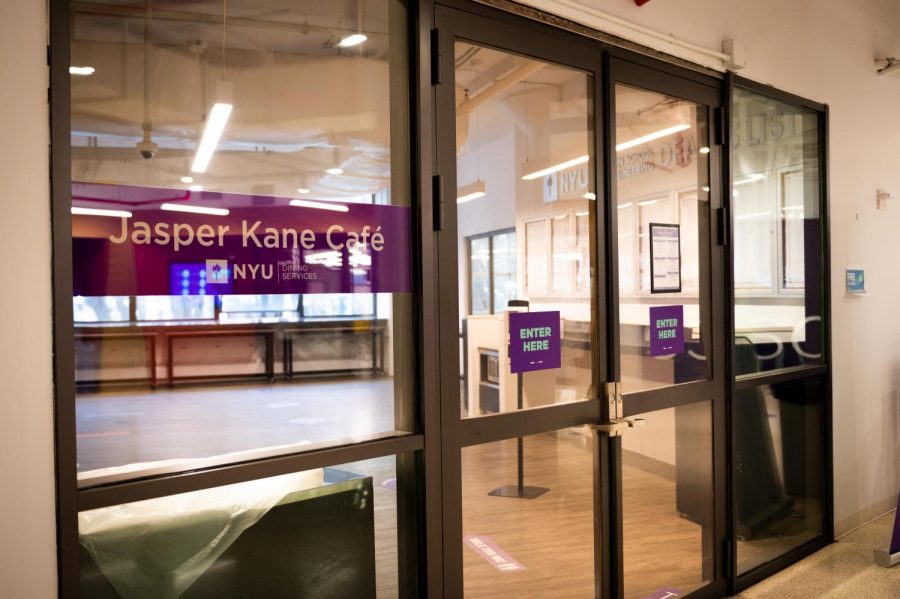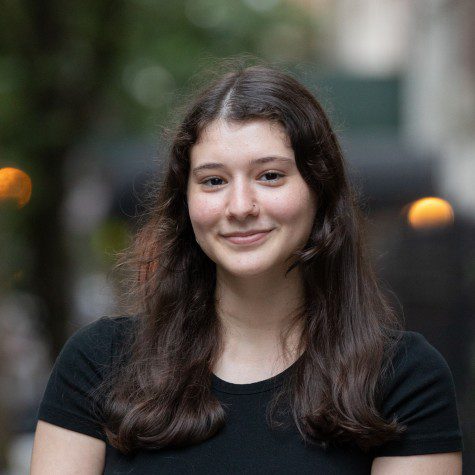The Resolution to Mitigate Food Insecurity at NYU will appear before the Financial Affairs Committee and University Senate. Proposed changes include smaller meal plans, rollover for unused meal swipes from one semester to the next, more options for purchasing dining dollars and a program for anonymously sharing meal swipes.
This comes after the Student Senators Council passed the resolution on Feb. 25 and the Student Government Assembly passed it March 4. SGA Health and Wellness Committee Chair Gavin Arneson and SGA Director of Finance Ryan Carney drafted the resolution, which proposes changes to the existing structure of dining services at NYU. If approved by the University Senate, NYU Dining Services will implement the resolution in consultation with an SGA representative.
According to the 2018 Being@NYU survey, 22% of NYU students have difficulty affording food, but many assume that the number is in fact higher.
“Students are the reason we’re here at the university,” Steinhardt sophomore and the Senator at-Large for Black students and students experiencing food insecurity Shamon Lawrence said. “We definitely saw the food insecurity that happened on campus [during the pandemic]. College food insecurity is so unique, because how you identify a food-insecure college student is very difficult. You can’t really get a true number, as they would have to self-identify.”
CAS junior Mehrin Ali, the Senator at-Large for students experiencing food insecurity and womxn of color, faces food insecurity herself. She agrees with Lawrence that the university should put the students first when making decisions.
“I think there’s always been this feeling on campus of, like, ‘Why can’t our meals roll over, that could save us money, that could save other people money, that can save resources,” Ali told WSN. “Of course the priority is the students.”
While Carney, a Global Liberal Studies sophomore, and Arneson, a Rory Meyers senior, agree that students should come first, they recognize the financial implications of a proposal like this.
“The only concern was that we as students are not always aware of the unintended consequences of something like this,” Arneson told WSN. “For example, would Chartwells raise the price of a meal plan because they were losing a revenue stream? Could this inadvertently make it more inaccessible to students?”
When writing the proposal, Carney researched the dining services of other U.S. universities contracting with Chartwells to learn more about their financial specifics.
“A lot of them had some of the things we’re proposing, like these weekly meal plans,” he said. “I thought that’s great. It allows more flexibility for students.”
According to Lawrence, the resolution is overdue and an exciting springboard for further advocacy.
“It’s been several years since students began advocating for meal plan proposals like you’re seeing in this resolution,” Lawrence said. “There were no new ideas in that resolution. It’s all based on things that people have been doing way before.”
Arneson and Carney both noted that aspects of this resolution were inspired by Share Meals, a program Jon Chin founded in 2013, after he noticed the large number of students posting on Facebook about food insecurity.
“We didn’t have any backing from the university,” Chin told WSN. “This is taking that to the next step and getting university, community, administrative buy-in into it. So that’s the biggest thing I love about this.”
Share Meals allows students to donate meal swipes to fellow students who need them. The issue is that the two students must meet up in order to share the meal swipe. For some students, this process can be an embarrassing hassle. Franklin Reitzas, the president of the Homeless Outreach Club at NYU, noticed that many students weren’t using Share Meals for this reason and hopes that this resolution gets implemented.
“It’s just too expensive for me,” Reitzas said about NYU’s current meal plan. “I will be 100% supportive of anything like this. It would allow people to not have to think twice.”
This stigma and embarrassment is the reason why Carney and Arneson pushed for an anonymous system.
“The general pool is a really effective way to allow students who experience chronic food insecurity to access resources in a way that’s not embarrassing and is anonymous,” Arneson said. “When you have an administrative burden physically showing up somewhere with another individual, it makes the service harder to use. That just deters people from using it.”
In the past, NYU has mismanaged measures that target food insecurity on campus. In 2019, food-insecure students found that money had been mistakenly taken out of their financial aid packages when they used the Courtesy Meal Program, undermining trust in the system.
For Arneson, this resolution is not just about access to food. It’s also about meeting basic needs.
“If you’re concerned about where your next meal is coming from, you’re not meeting your needs,” he said. “You’re not able to focus on your academics in a way that will allow you to perform to your greatest potential. That’s really at the heart of it. It’s Maslow’s hierarchy of needs. If you don’t have your basic needs taken care of, you can’t address anything else.”
Email Rachel Fadem at [email protected].

















































































































































